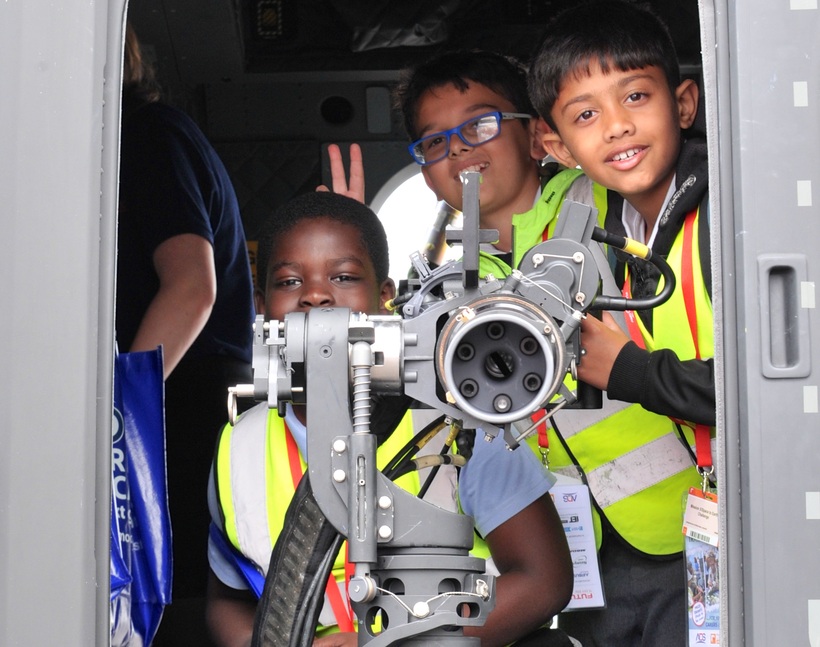My daughter’s conscientious objection
A Quaker parent, and school governor, reflects on a painful struggle with their 10 year-old daughter's primary school.

In the run up to the SATs tests we received a letter asking for parental consent for our daughter to visit the local army HQ. My daughter, who grew up in Quaker Meeting and proudly wears a white poppy each year, was concerned about the trip. I was worried about her missing out an experience with her class. We discussed it and watched Quaker Peace & Social Witness's film The Unseen March. My daughter decided she had a conscientious objection to the trip and didn't want to go.
We wrote a letter to the school, making it clear that this
was an objection on the grounds of conscience, and asked for alternative
activities. The letter was handed in at the head's office and was intended to
open up a dialogue. As the time to the trip drew nearer I realised the letter
had not been passed on to my child's teacher and no dialogue was taking place.
My daughter was encouraged to take part in the trip which put her in a very
difficult position.
'Just like any other machine'
The day of the trip came and went. My daughter spent it
helping out with a younger class, which she said she enjoyed, but I felt for her when
all her friends returned talking about how much fun they'd had on the trip. A couple of days later we
were having breakfast and she said that her friends had told her about an instructor
dismantling a gun, describing it as 'just like any other machine'. I wrote to the school again
about children aged 8–10 being presented with this view of guns. The teacher
didn't share my concerns and viewed the trip as a healthy activity as it
involved an assault course. I was asked why no other parents objected
and have been asked to
leave the matter alone. I've effectively been silenced.
[QUOTE-START]
For some children, as well as adults, an uncritical introduction to weapons and the Armed Forces is deeply problematic.
[QUOTE-END]
If we hadn't raised our concerns my daughter's conscientious
objection would not have been respected. Her school wouldn't know that for some
children, as well as adults, an uncritical introduction to weapons and the
Armed Forces is deeply problematic. But something died in me as a result of
this experience. Parents and children of such a young age should not have to
deal with these issues.
Targeting economically deprived areas
In addition to moral and religious concerns, the purpose of
education, connecting with the spirit of enquiry within each child, exploring different points of view, weighing up
evidence, is being undermined by this uncritical promotion
and involvement of the armed forces in our schools.
I have spoken to teachers in other areas, such as London,
who have said that these kinds of visits to the Armed Forces wouldn't be
tolerated, not least because they have children from conflict areas for whom it
could be frightening. Yet in an economically deprived area like ours, it's sold
to us as a positive and healthy option that we're meant to accept without
questioning, which is after all the essence of military ethos, as Ben Griffin
from Veterans for Peace UK points out in The
Unseen March.
My own father was a member of the armed forces. He always
described them as the 'poor man's University', but I'm shocked that the Armed
Forces are allowed to target areas of deprivation in this way.
Raising awareness
We've had a lot of support from our local Quaker meeting,
and I want other parents who face similar situations and have similar concerns,
to know that they're not alone. QPSW have information and resources to help
challenge the Government policy to increase the military presence in schools,
as does the organisation Forces Watch. Quakers across the country are starting
to take action on militarisation, writing to their MPs and local press. The policy of promoting military
involvement in education has lacked public scrutiny but raises serious
religious, ethical, and educational questions. It requires proper debate.